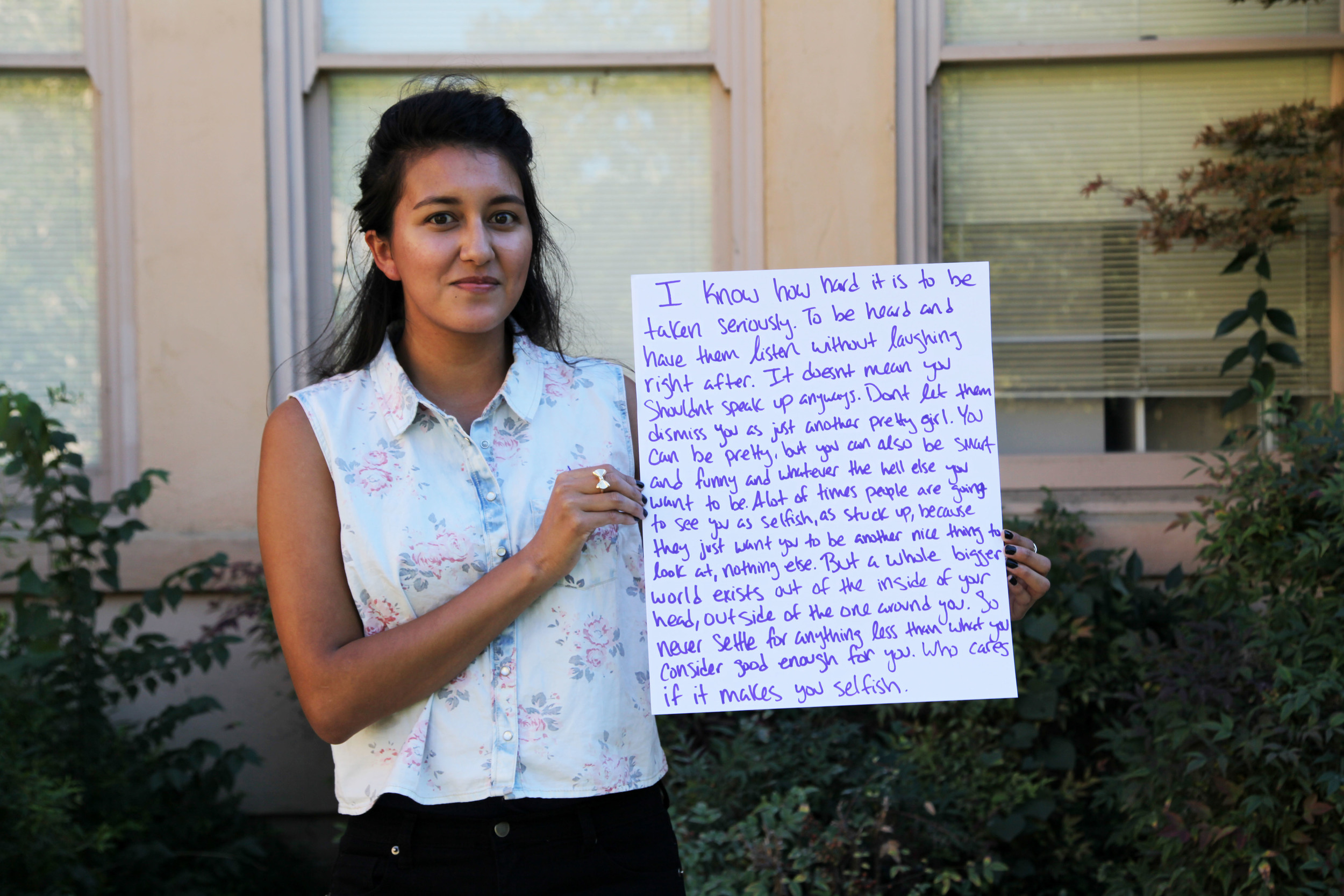
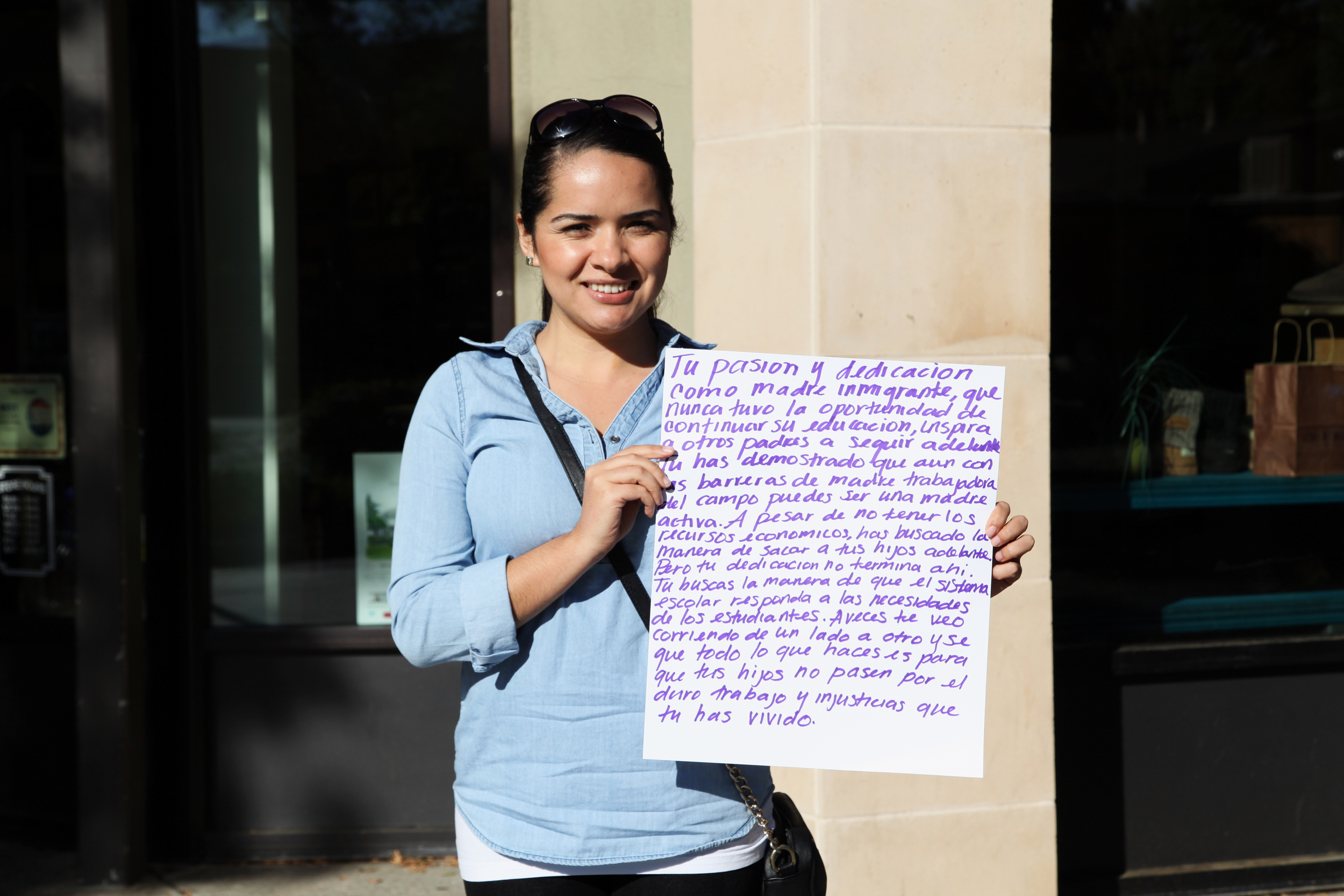
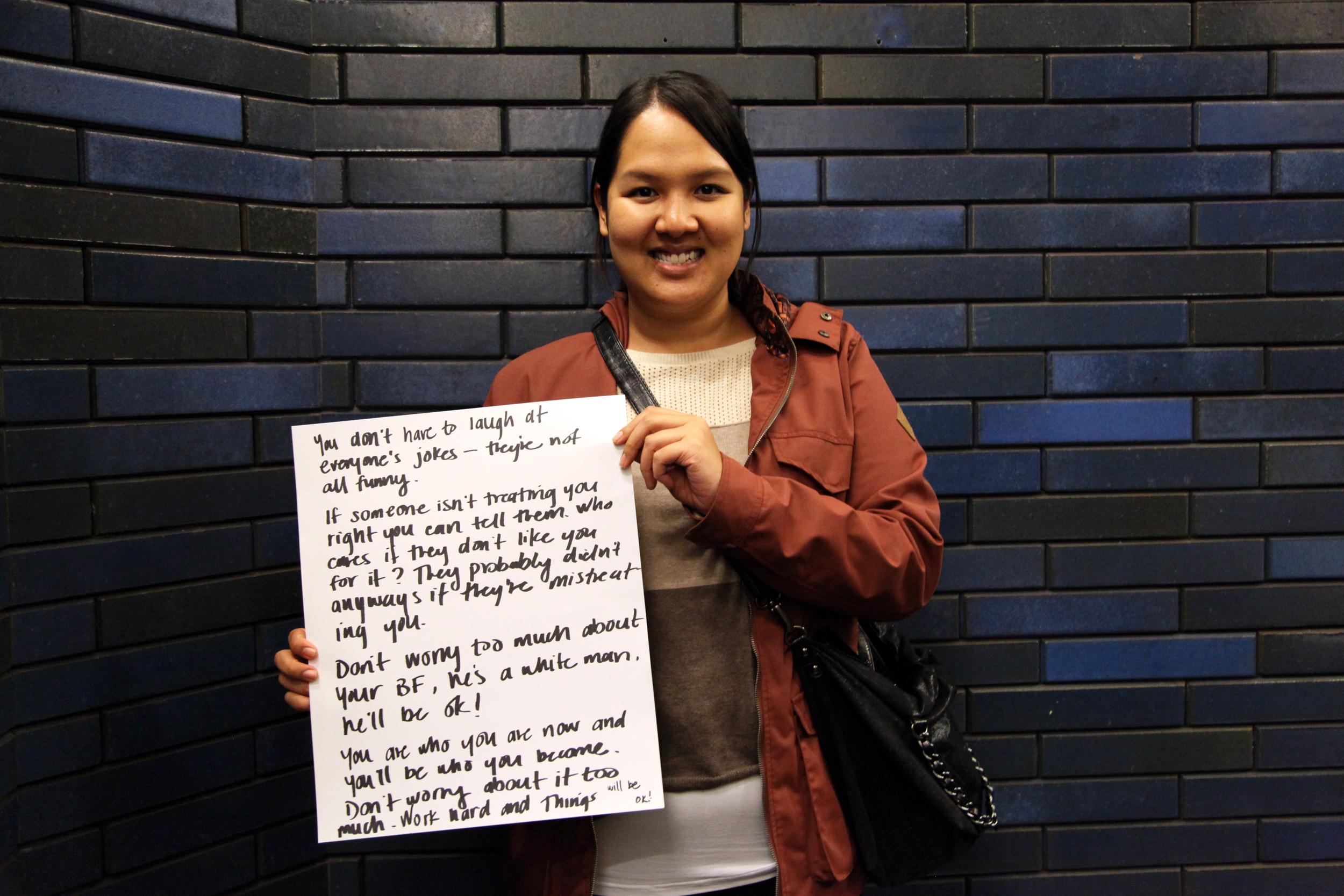
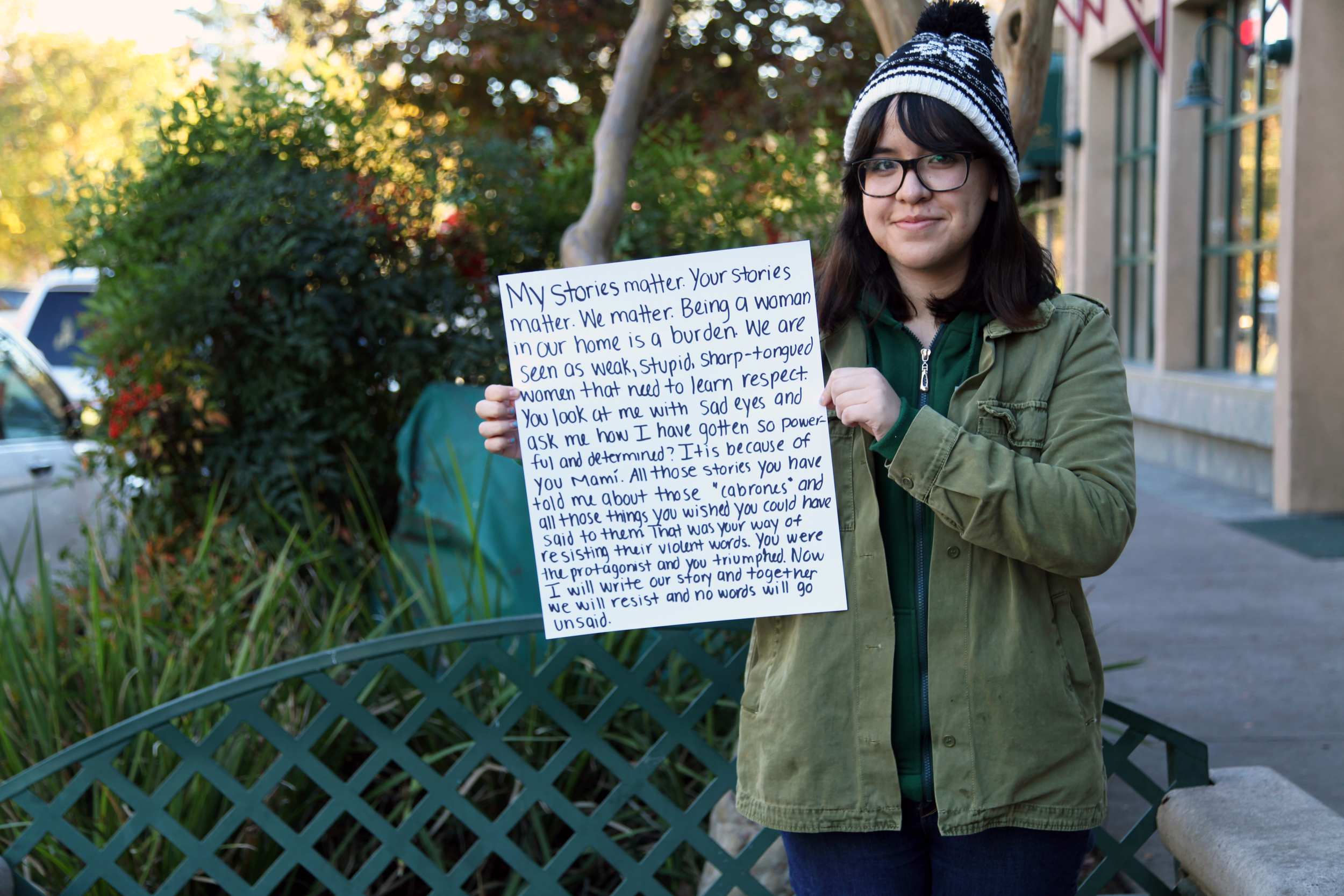
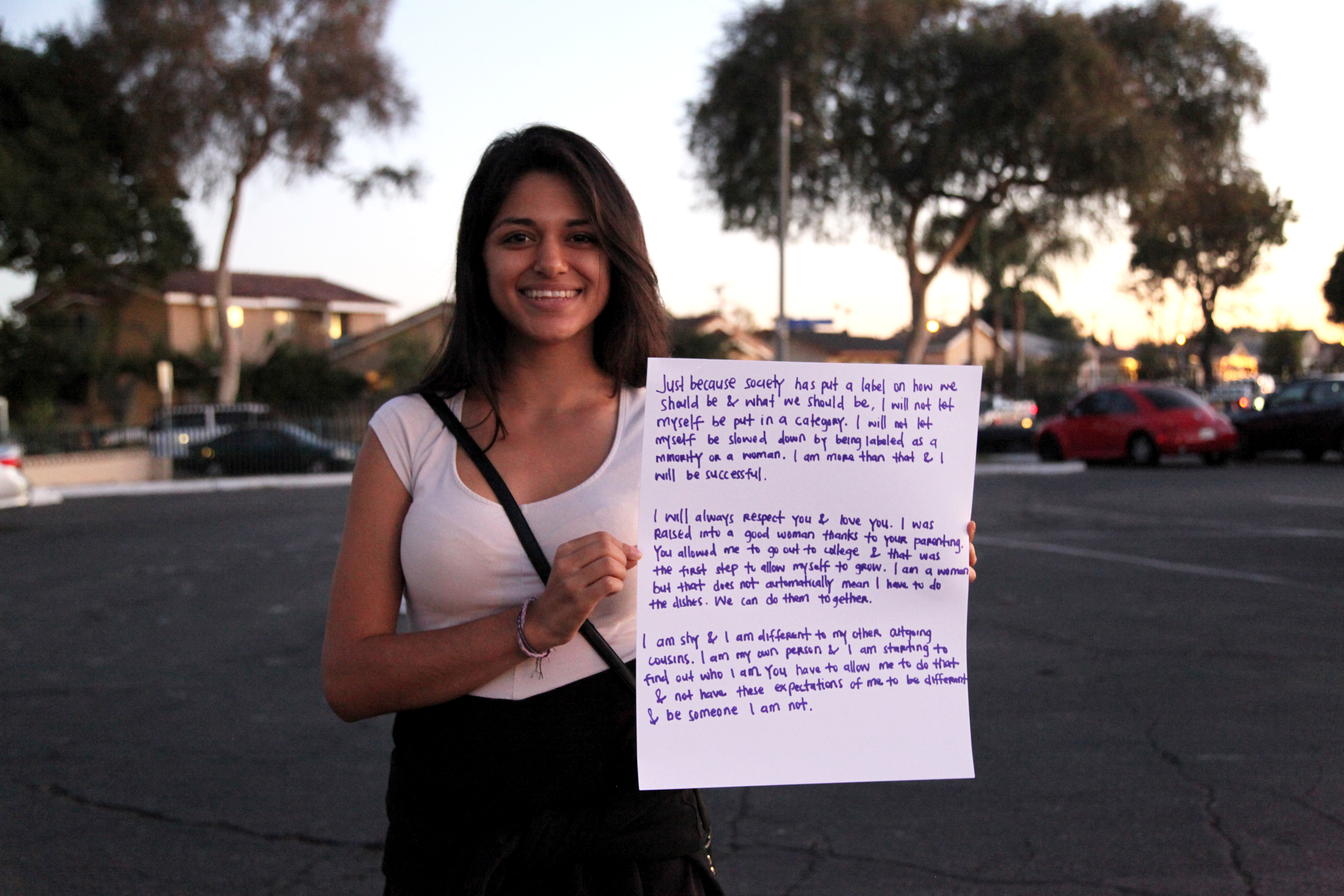
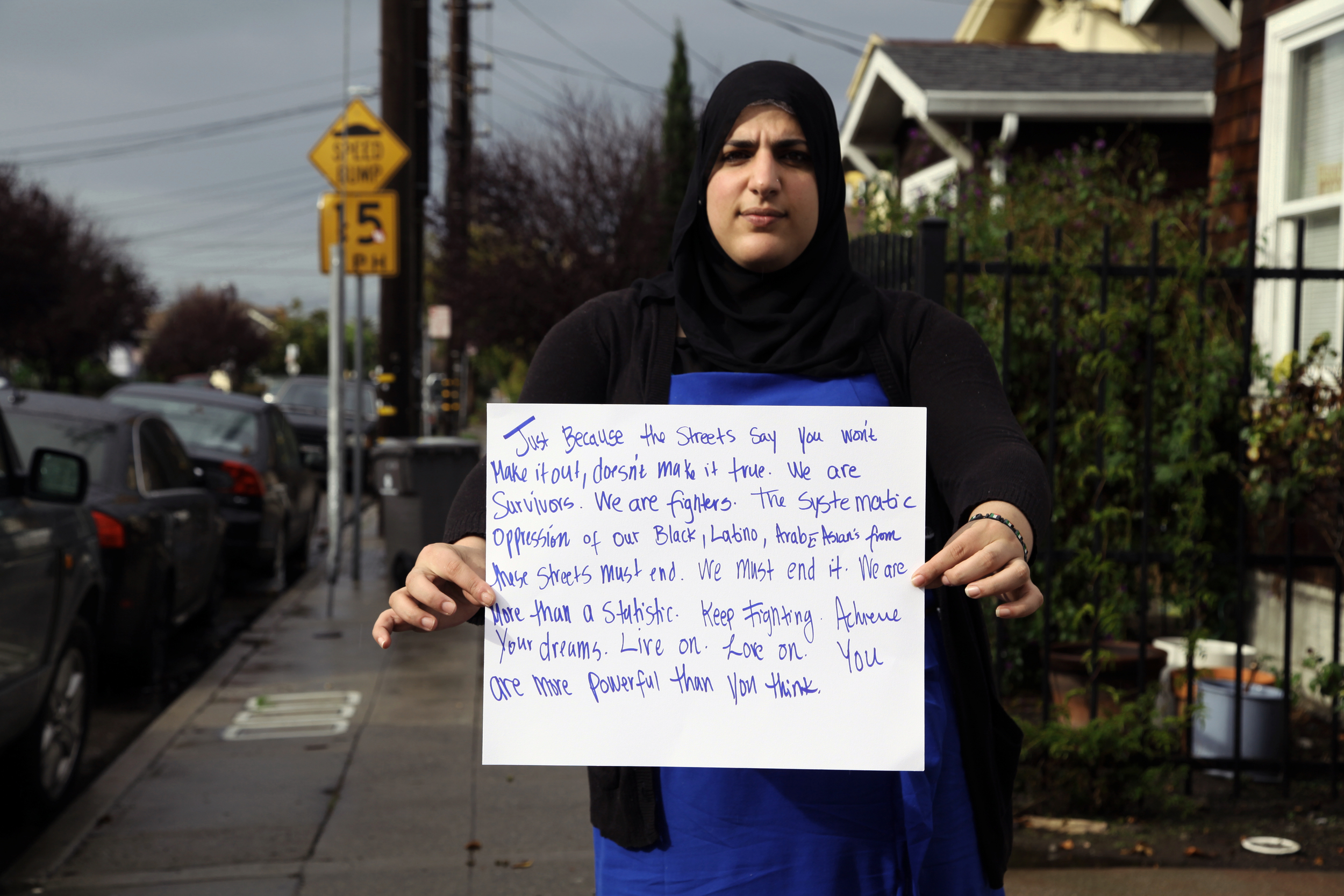
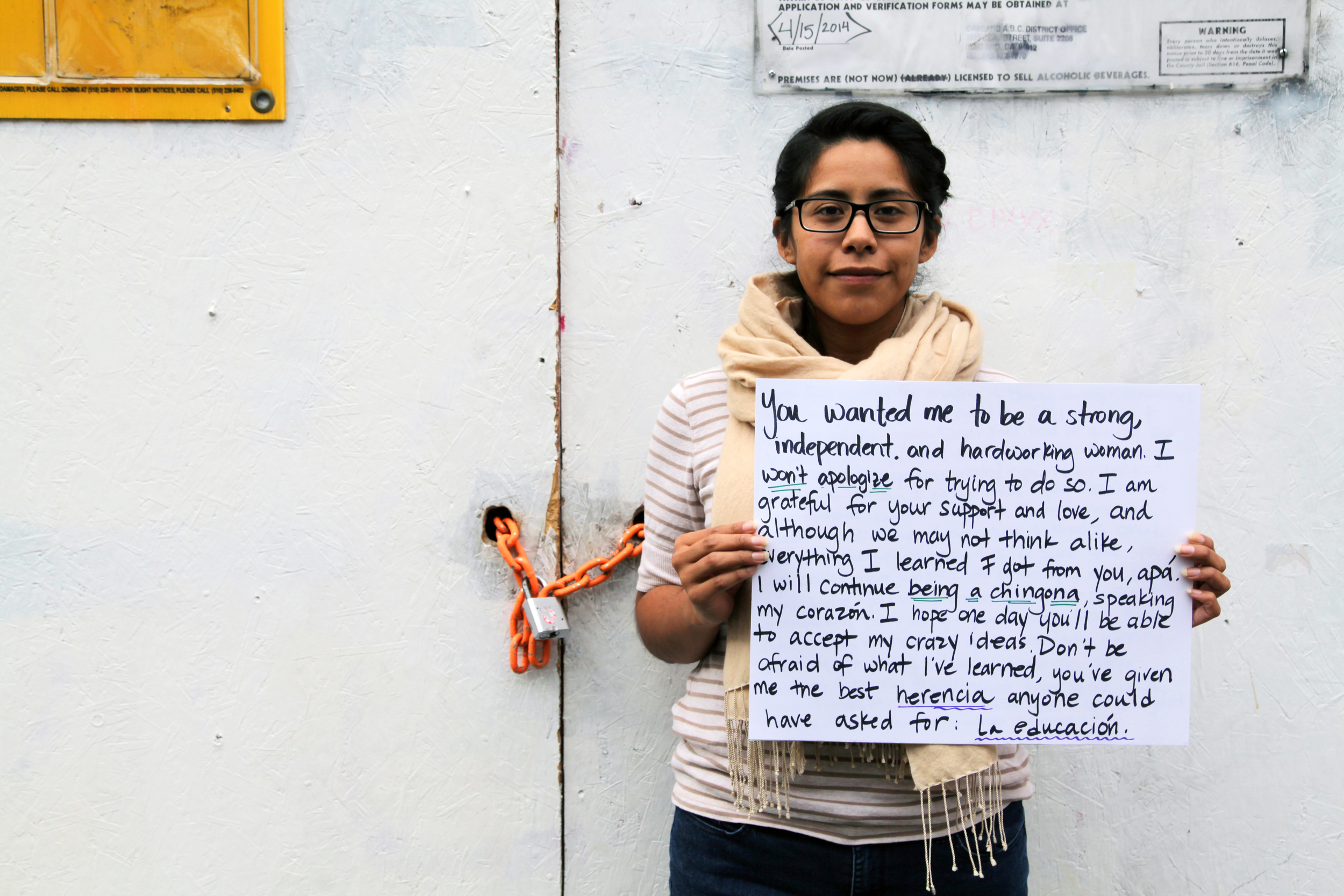
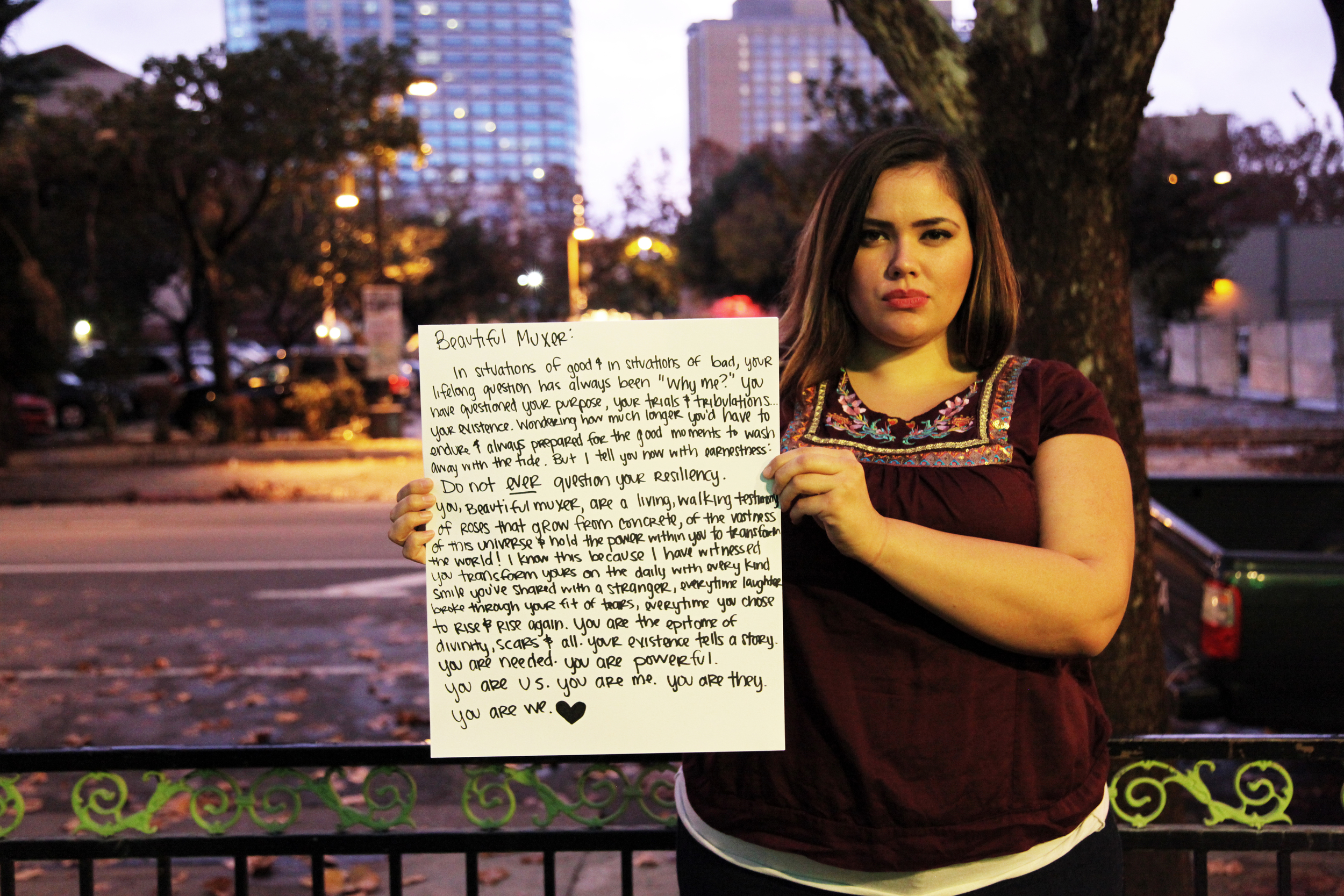
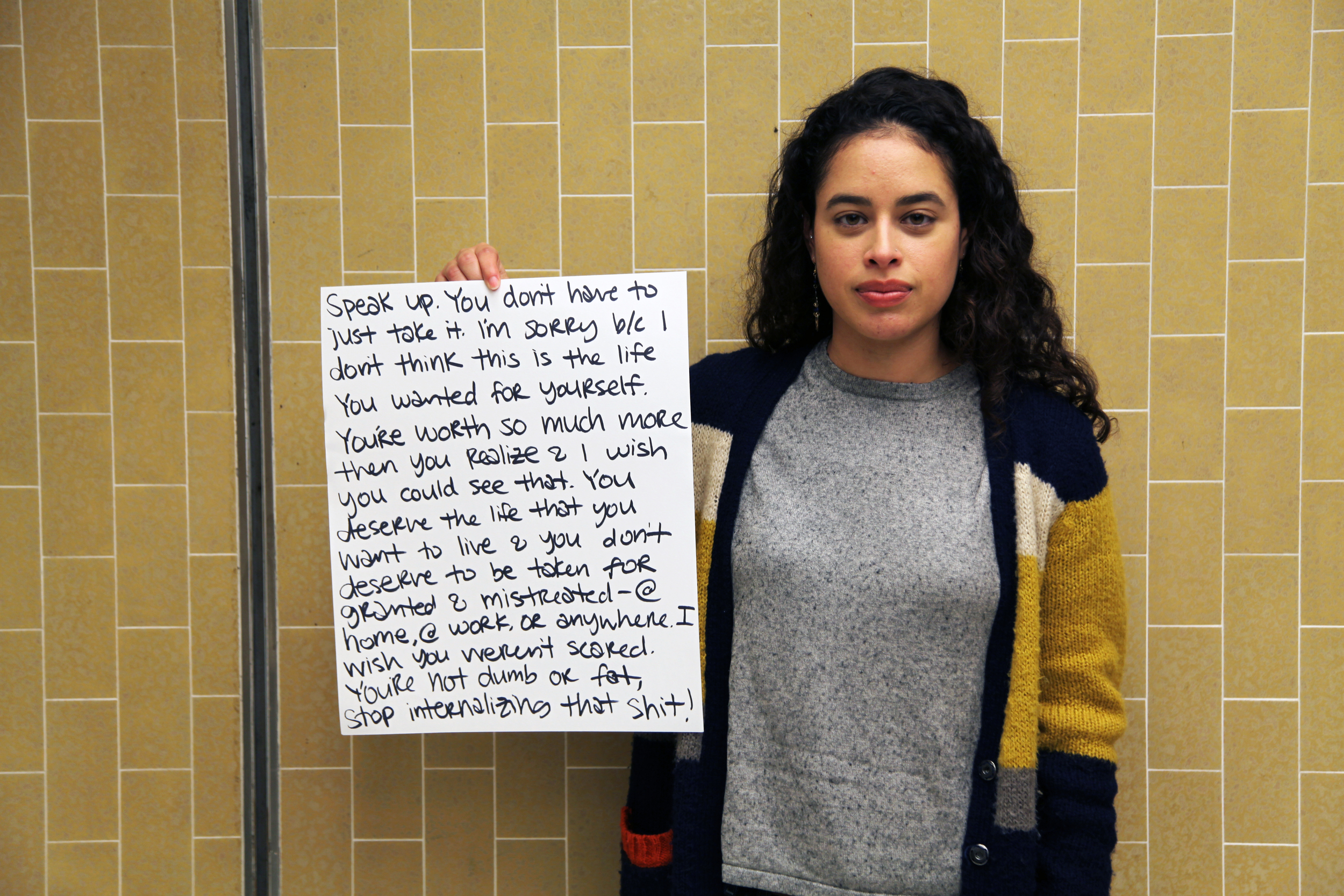
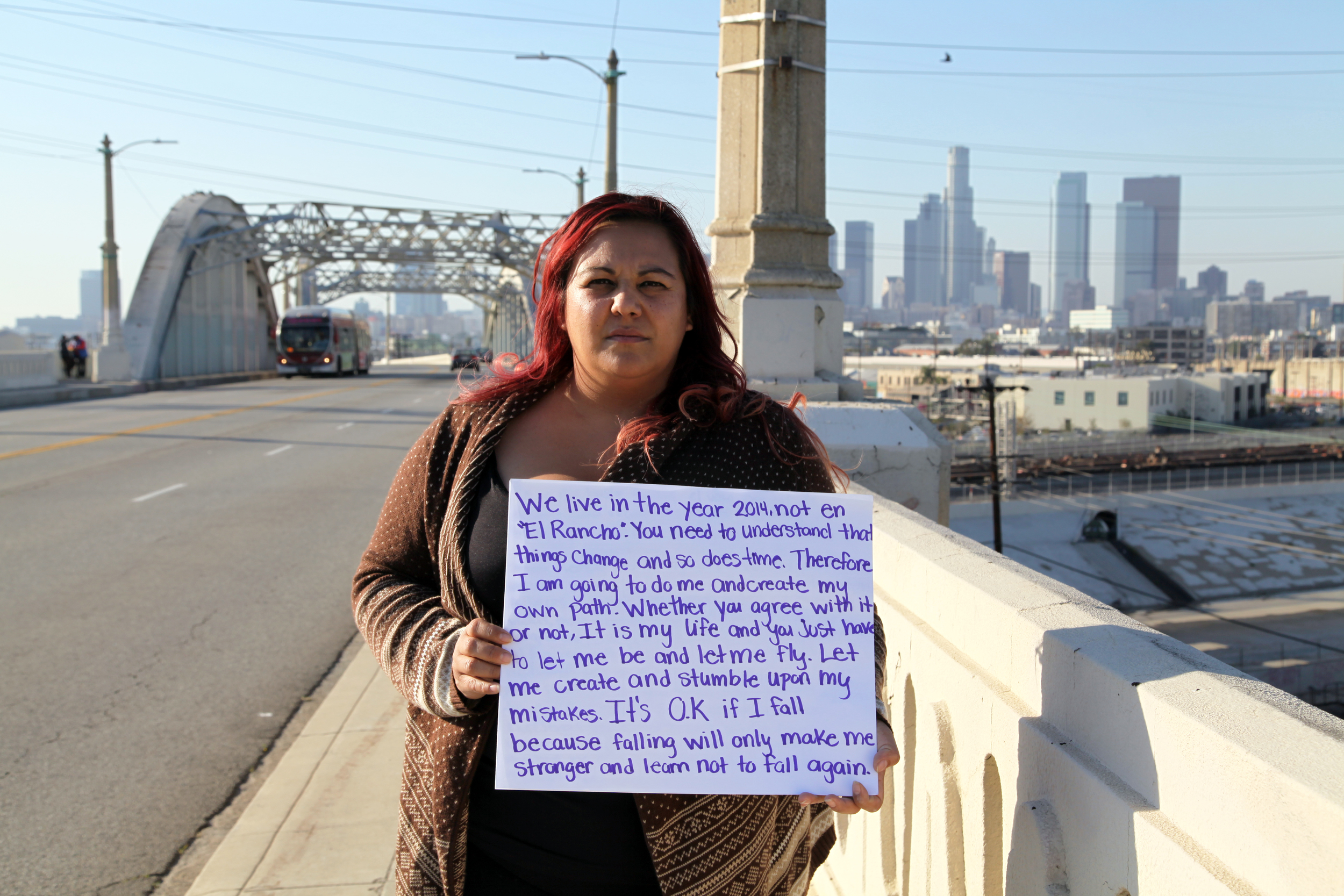
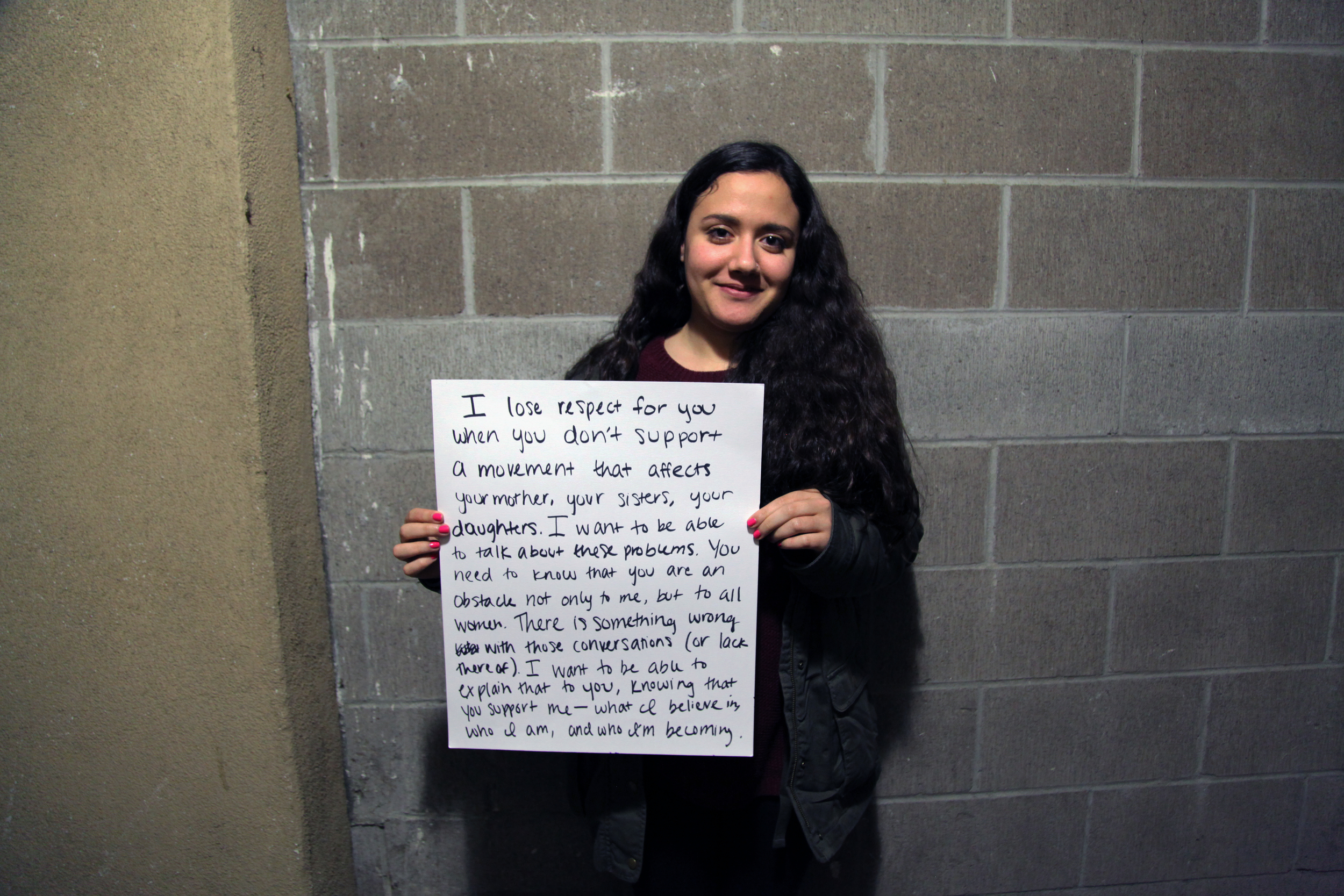
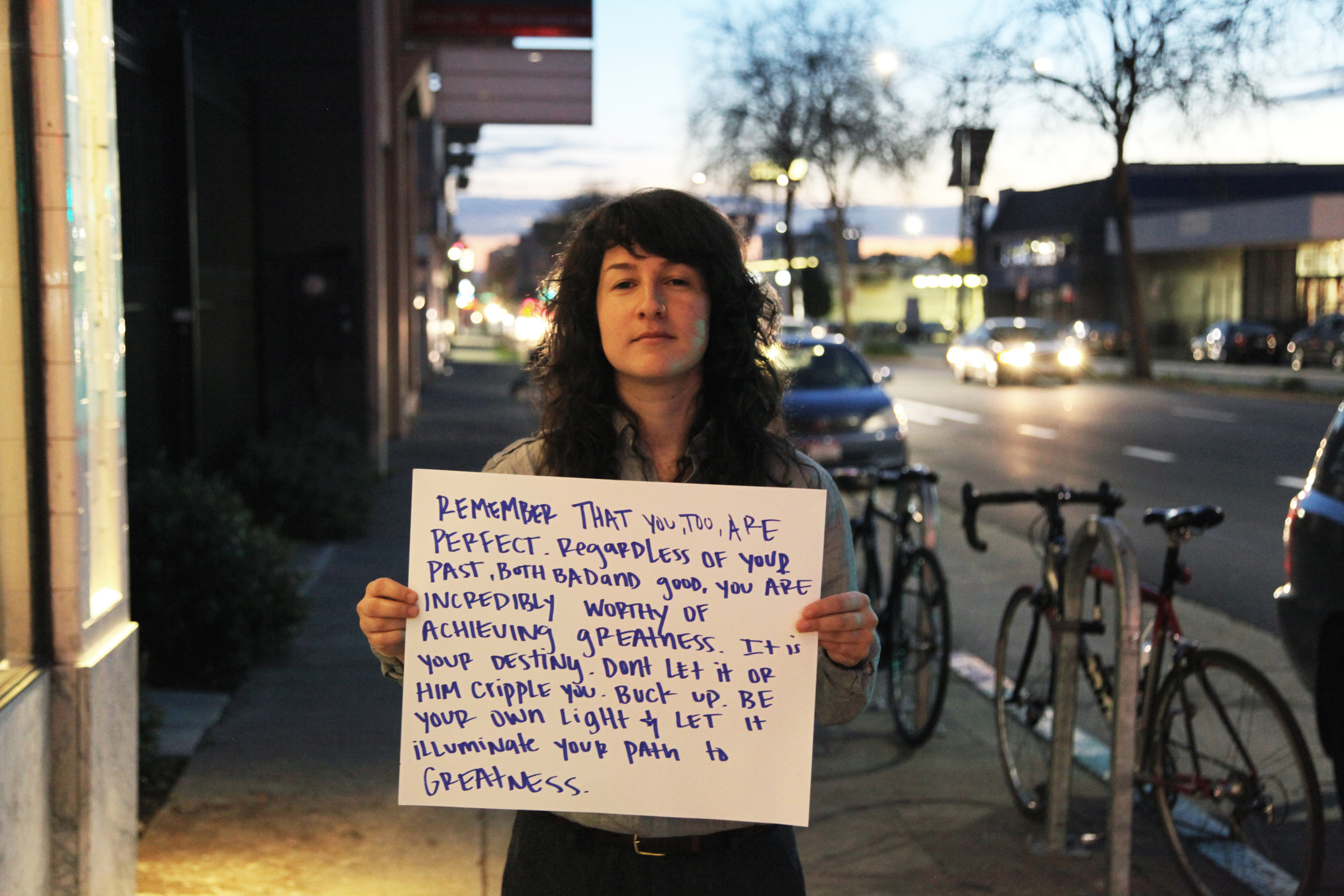
CHISMEANDO
CHISMEANDO is a collaborative project with first generation women of color within higher education. This project was created with the intention of creating an alternative space for our communities to talk about issues that exists but are often negated, denied or forced into the shadows of silence. My hope is that with this project a dialogue will be created (or started) about these issues or at the very least acknowledge the existence of these issues. Our communities have a long history of colonization, discrimination, abuse and trauma, it is my hope that this project serves as a stepping stone for healing on an individual level and on a community level. It is my hope that many individual narratives will bridge into a collective narrative and that the private will bridge into the public, and in doing that we will start to create alternatives to the many worlds we want to create within this world.
CHISMEANDO?
The title for this project came to me in the process of working on this project. Part of this project asks the individuals participating in dialogue with me to share their story with me about the most hurtful thing someone they love has said to them. The most common question that came up was “How much detail do you want?” and my response was always “Enough for me to know the Chisme.” Automatically, they understood just how much they should share. At end of the conversation, I asked one of the individuals “how was it?” and they responded by saying “it was basically likechisme time.” It then occurred to me, why not CHISMEANDO? Chisme is often looked down upon and used as an insult towards women. The last thing anyone wants to be called is a chismosa. But at one point or another we are all chismosos: we want to know who did what, who said what and what happened to who. My friends, my mom, my aunts, my cousins, my grandmas we’ve all been associated with chisme, why not take it back and turn it into something good? Dare I say that Chisme has been used as a form of survival and therapy for some? Chisme sessions con las comadres are where foreign ideas, issues, and traumas are discussed, judged, deconstructed, challenged, criticized and dissected most often. Chismes are also spread like wild fire; once it is put into words- it is likely that someone else will be hearing those words and ideas. Why not use this platform to spread ideas healing and creating? It is my hope that the end production of this project (book and pictures) will create its own chisme session, and create a dialogue in communities where this project is seen.
Yo CHISMOSA?
For this project I ask the individual to share “the most hurtful thing someone you love has said to you.” I ask them to write it down on a piece of blank paper, as a way to get them to put it into words before expressing it aloud. The reason being is because a lot of times it is the first time that the issues are put into words and expressed to someone else. I then ask the individual if they can tell me about it, sometimes they do and other times they tell me they’d rather me just read it. Regardless of the way it is approached, we have a conversation about the instance and it opens up into a bigger conversation. In asking the individual to be open, vulnerable and trusting I put myself in the same situation and share with them my own stories. Part of this is to create alternative safe spaces, support methods, and creating a new possibility of existing, building and growing together. The second part to this conversation that happens is that I ask the individual “what are ways/ methods in which you are trying to break patterns of oppression/ discrimination/ abuse in your own personal life?” This is done in hopes of creating agency for the individual but also to share strategies and tactics with each other, not only as a form of survival but as a form of support, to try and change the dynamics of the issues that exists within our communities. In asking the individual to think about their own ways of coping and breaking chains, I invite them to create an alternative narrative of how we could be, to vocalize what they’d like to see changed, and how we should live with each other.